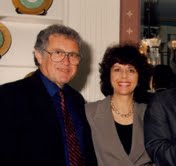John Sandilands
Introduction by Liz Hodgkinson.
 John Sandilands was one of the most witty and perceptive journalists of the twentieth century.
John Sandilands was one of the most witty and perceptive journalists of the twentieth century.
He had the rare gift of being both light-hearted and multi-layered so that although his pieces slipped down like syllabub, they always repaid a second, or even a third, reading. Usually, a piece of journalism is so ephemeral that it disappears in a puff of smoke when you try to read it again. Not John’s work. When, once, an editor complained that he got more out of John’s stuff on a second reading, John replied: “Well, couldn’t you read it the second time, first?”
At heart, John was a poet, and he possessed a poet’s sensibility. An unusually high level of empathy with his subjects made him a brilliant interviewer and profile writer, and an extraordinary level of observation meant that his columns always contained some new and startling apercu which, nevertheless, chimed precisely with his readership.
Everything John wrote was shot through with quirky, original humour and although a very modest man, he would often say –with truth – that he had touched the nation’s funny bone. His level of success in this can be adjudged by the many herograms he received from readers, some of which are reproduced on this site. Most of us toiling in the inky trade know how much more common it is to receive nasty or spiteful letters from our readers.
So, touched with genius as he was, how is it that John was not better known as a writer? His main problem was that he could not churn out stuff to order, and would not let any piece go until he was completely satisfied with it. For John, even the most casual piece of journalism had to be finely crafted, finely honed, and this took as long as it took, never mind how loudly editors were screaming at him.
And then his muse, unreliable at the best of times, could at the crucial moment, desert him entirely.
Even at the height of his creative powers, and when assiduously courted by the most prestigious publications of the day in both the UK and America, John all too often failed to deliver. Then editors frequently decided, and who could blame them, that they could manage well enough without him.
All this meant that his oeuvre, for somebody so prodigiously gifted, was disappointingly small.
However, he did sometimes manage to turn stuff in on time, thrilling editors and readers alike with its resonant, sonorous quality. John wrote equally successfully for both highbrow and lowbrow, achingly trendy and traditional publications, and always, his main aim was to please, never to show off but take the reader with him on a rollicking ride. He possessed an enviable, writerly ability to turn the most mundane activity, such as a trip round the supermarket or visit to the barber, into an exciting adventure of discovery.
And however acute the agonies of composition, they are never apparent in the final, polished product.
His work deserves another airing, so here it is.
John Sandilands Articles
- Obituary, March 2004 >>
- Introduction to Articles >>
- Article2 >>
- When the cure is sun, sea and mud >>
- Interview with Ava Gardner >>
- Interview with Dustin Hoffman, Los Angeles Times, 1968 >>
- Fiji >>
- Patrick Moore >>
- Mr Pastry >>
- Interview with Jane Fonda >>
- letters to and from John to editors >>
- Ballooning >>
- The Toad Cross Code >>
- Peter Sellers; that is the problem >>
- In bed with John Sandilands plus Jilly Cooper, Zandra Rhodes and Peter Cook >>
- Know the Type >>
- Animal poems >>
- The Toad Cross Code >>
- Albert and the Jaguars >>
- Herogram >>

